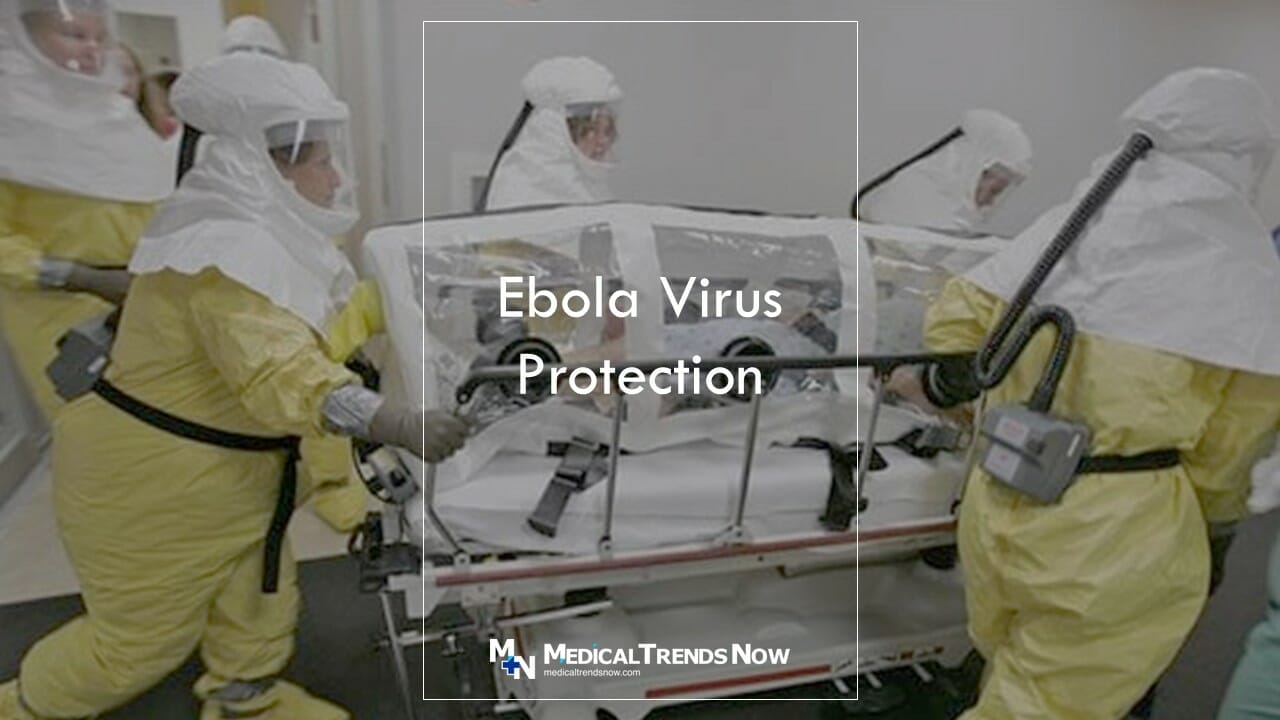Table of Contents
Ebola is a deadly virus that can be spread through contact with bodily fluids. If you are in an area where there has been an outbreak of the disease, it is important to protect yourself from infection. There is no outbreak of the Ebola virus in the Philippines as of this writing, not yet. But when it does break out, here’s what Filipinos need to know about the Ebola virus in the Philippines.
What is Ebola virus?
Ebola is a virus that is highly contagious and deadly. It is a member of the family of viruses that includes Ebola hemorrhagic fever, which is the most severe form of Ebola. If there is an ebola virus in the Philippines, then the virus will cause severe bleeding and can quickly lead to death if not treated. There is no specific treatment for Ebola, but early diagnosis and treatment with antibiotics may help prevent serious illness or death.
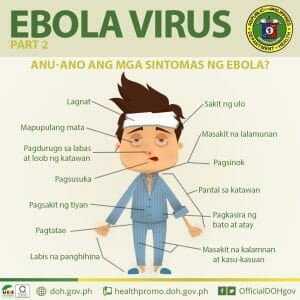
(Source: Department of Health in the Philippines)
What is Ebola hemorrhagic fever?
Ebola hemorrhagic fever (EHF) is a severe form of the Ebola virus disease (EVD), which is caused by the Ebola virus. If there is an ebola virus in the Philippines, the EHF typically causes severe hemorrhaging, and often leads to death.
Where is the current outbreak of Ebola virus?
Ebola is a serious virus that can cause severe illness in humans. The current outbreak of Ebola virus is occurring in West Africa, and has so far killed over thousands of people. If there is an ebola virus in the Philippines, then this will be a great challenge for the government.

How long does Ebola virus last?
There is no specific duration for how long the Ebola virus in the Philippines can be present in the body.
The virus is believed to be contagious for up to 21 days after exposure. If there is an ebola virus in the Philippines, then the symptoms of Ebola virus infection generally develop within two weeks and last for three to four weeks.
However, the clinical course of the virus can vary significantly from person to person, and some people may experience a much shorter or longer period of illness.
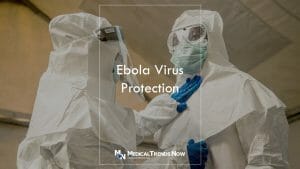
What Are The Tests To Diagnose Ebola Virus in the Philippines?
The Ebola virus is a deadly virus that causes severe fever, vomiting, diarrhea, and bleeding. There is no specific test to diagnose Ebola, but diagnostic tests for other viruses can sometimes identify the infection. Infectious disease Filipino doctors may also use blood tests and scans to help determine if a patient has the virus. Treatment for Ebola typically involves supportive care in an isolation unit until the patient recovers.

What are the public health strategies being imposed to avoid Ebola outbreaks in the Philippines?
The World Health Organization (WHO) is working closely with national authorities to develop and implement public health strategies to avoid Ebola outbreaks. These include prevention of chain transmission of the virus, surveillance for early signs of the disease, and rapid response to any outbreaks.
Treatment centers are being set up in affected countries, and a vaccine is under development. If there is an outbreak of the Ebola virus in the Philippines, then the government will follow the WHO guidelines.
How To Protect Yourself in Case of the Ebola Virus in the Philippines Occur?
There is no specific treatment for Ebola, and the prognosis for those infected is generally very poor. However, there are many safe ways to stay healthy and prevent infection from this dangerous virus. Here are the steps that people can take to protect themselves from the virus.
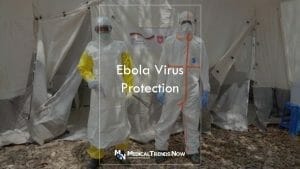
Wash Your Hands Frequently
Filipinos need to wash their hands with a bar of soap frequently. The Ebola virus is a deadly disease caused by a virus found in the saliva and blood of infected animals. It can be spread through contact with blood, mucus, or other body fluids from an infected person. The virus can also be spread through contact with objects and surfaces that have been contaminated with the Ebola virus.
Since the Ebola virus is spread through contact with bodily fluids, it is important that everyone follow basic hand-washing practices. When you are preparing food, cleaning surfaces, or handling sick or injured people, always use clean gloves, aprons, or coveralls to avoid coming in contact with these fluids. If you are going to visit someone who is sick with Ebola or an area where the Ebola virus is known to be circulating, follow the health guidelines of your local authorities.

Use Barrier Protection Cream
Make sure to use a barrier protection cream when traveling to areas where the virus is prevalent.
If there is an outbreak of the Ebola virus in the Philippines, the best prevention is to protect your body and skin with a barrier protection cream available in pharmacies.
What is barrier protection cream?
Barrier protection cream is a cream or lotion that is applied to the skin to help protect against the spread of germs. Barrier protection creams are available over the counter and at most pharmacies. They come in a variety of forms, including creams, gels, sprays, and wands.
Apply barrier protection cream to your hands before cleaning anything with dirty hands, such as toilets or counters. If there is an outbreak of the Ebola virus in the Philippines, one of the best protection is barrier cream.

Avoid Contact With Infected People
Ebola is most often spread through contact with the blood, mucus, and saliva of an infected person.
Those at the highest risk for contracting the virus include healthcare workers who are exposed to the virus while caring for patients who are infected and family members of people who are infected.
It is important to avoid contact with people who are infected with the Ebola virus so that you do not become sick yourself. As we learn more about the Ebola virus, it is important to be vigilant about avoiding infection.

Cover Your Mouth When You Cough or Sneeze
If you are at high risk for contracting the virus and do not have any symptoms, it is important to take basic steps to prevent the spread of the virus.
These steps may include covering your mouth when you cough or sneeze.
Covering your mouth when you cough or sneeze is one way to prevent the spread of the Ebola virus, as it is a very contagious virus and can be spread through saliva, mucus, or blood.
Preventing the spread of the virus is important because it can help protect other people who may be close to you.

Avoid Touching Eyes, Ears, and Mouth
The Ebola virus is a highly contagious and deadly virus that can cause severe illness in humans.
There is currently no cure or prevention for Ebola, and the best way to avoid getting it is to avoid contact with the body fluids of people who are infected.
The Centers for Disease Control and Prevention (CDC) recommends that people do not touch their eyes, ears, or mouth if they have been exposed to the Ebola virus.
Hospitals are carefully monitoring patients who have contracted Ebola and are taking precautions to prevent the spread of the virus.
If there is an outbreak of the Ebola virus in the Philippines, the government will most likely follow the same guidelines from the CDC.

Keep your home clean and disinfected
Ebola is a virus that can cause serious health problems, including death. It is spread through contact with body fluids, such as blood, vomit, or saliva.
The best way to prevent the spread of Ebola is to keep your home clean and disinfected.
If there is an outbreak of the Ebola virus in the Philippines, the best prevention is sanitation.

Practice Safe Sex to Avoid Infection
To help prevent infection, practice safe sex by using condoms every time you have sexual intercourse.
Condoms protect both you and your partner from getting Ebola.

Get Immediate Medical Care If You Become Ill
If you or someone you know becomes ill with the Ebola virus, it is important to seek immediate medical care.
The virus is highly contagious and can be life-threatening if not treated quickly.
If you develop symptoms such as fever, diarrhea, vomiting, or a headache, please contact your Filipino doctor immediately.
Be sure to tell your doctor in the Philippines about your travel history to Africa and any contact you may have had with people who are infected with the virus.
If ebola is not treated, it can cause serious health complications, including death.

What Should I Ask my Filipino Doctor About Ebola Virus in the Philippines?
If you are concerned about the Ebola virus in the Philippines, it is important to talk to your Filipino doctor. There are a few things you should ask your Filipino doctor about:
- Do I have any symptoms?
- What do I need to do if I develop symptoms?
- Can I travel if I am symptomatic?
- Is there a risk of passing the virus to others?

Report Cases of Ebola To The DOH
If there is an outbreak of the Ebola virus in the Philippines and you have been in close contact with someone who has contracted the Ebola virus and is experiencing symptoms such as fever, severe body aches, diarrhea, vomiting, or a headache, please seek medical attention immediately.
Do not attempt to treat yourself, and do not put yourself at risk by trying to prevent the spread of the virus by washing your hands or wearing gloves. The best way for a Filipino will do is to report it to the Department of Health.
In the USA, if a person is in close contact with the virus, they will report it to the Centers for Disease Control and Prevention (CDC), which advises people who may have been in contact with individuals infected with the Ebola virus to report any symptoms to their health care provider as soon as possible.
In the Philippines, the same methodology must be used to measure the number of people and contain the spread of the virus in the community.
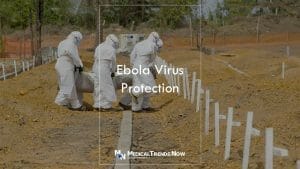
FAQ
Where can I get more information about the Ebola virus in the Philippines?
The Bureau of Quarantine (Department of Health) has a FAQ page regarding the Ebola virus in the Philippines.
The Philippine Department of Health also has a simple explanation of what is Ebola virus.

What food or drinks to avoid Ebola?
People should avoid eating raw meat, fish, or fruit that has been contaminated by the virus.
What are the risk factors for Ebola?
There are a number of risk factors for Ebola, including but not limited to traveling to countries where the virus is prevalent, having contact with someone who has the virus, and being infected through contact with body fluids. The risk of contracting Ebola decreases as long as precautions are taken to avoid exposure to the virus. There is no known cure for the virus, and patients can die from it if not treated quickly.
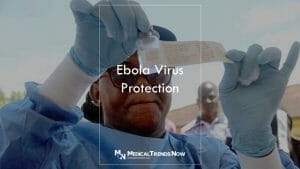
How different is Ebola from COVID?
There are a number of significant differences between the Ebola and COVID viruses. For example, Ebola is a hemorrhagic fever virus, while COVID is a respiratory virus.
Additionally, Ebola is associated with large outbreaks in Africa, while COVID is more commonly spread through contact with saliva or other respiratory secretions.
Finally, both viruses can cause death in high doses, but Ebola has been known to cause more severe diseases in humans.

Conclusion: How To Protect Yourself From Ebola Virus in the Philippines
There is no vaccine or cure for the Ebola virus, but there are ways to protect yourself from this deadly virus. If there is an outbreak of the Ebola virus in the Philippines and you are in an area where the outbreak is happening, take the following precautions:
- Cover your nose and mouth when you sneeze and cough, and wash your hands often.
- Avoid contact with blood and body fluids, especially if you are pregnant or have a weakened immune system.
- Stay in close contact with people who are infected only if they are being treated in a designated hospital setting and under close medical supervision.
If you do become infected, seek immediate medical attention. Symptoms of Ebola include fever, headache, muscle aches, vomiting, diarrhea, and rash.
These are some tips on how to protect yourself from contracting the Ebola virus in the Philippines.

Sources:
- Risk assessment of Ebola Reston virus in humans in the Philippines – National Library of Medicine
- Ebola Virus: Frequently Asked Questions | Bureau of Quarantine Philippines
- Prevention and Vaccine | Ebola (Ebola Virus Disease) – CDC
- Protect Yourself From the Ebola Virus – North Carolina Medical Society
- Ebola virus infection – Prevention | BMJ Best Practice US
- Ebola Virus: Frequently Asked Questions | Bureau of Quarantine
- Five Cases Of Ebola Virus In Philippines – CBS News
- DOH confirms Ebola Reston Virus case in PH facility – Rappler
- DOH: Philippines is still Ebola-free – Official Gazette
- PH Committed to Help in Global Response Against Ebola – United Nation
- View of Hospital preparedness for Ebola virus disease – OJS WHO
- UN helping Philippines tackle first-ever Ebola outbreak in pigs – United Nation
- On the Ebola Outbreak in the Democratic Republic of Congo – Department of Foreign Affairs
- Reston ebolavirus in Humans and Animals in the Philippines – Mary Elizabeth G. Miranda and Noel Lee J. Miranda
- Filipinos cautioned amid Ebola outbreak in Congo – Philippine News Agency
Disclaimer:
This website is intended to educate both members of the general public and those working in the medical field on the prevalence, causes, and methods for preventing, diagnosing and treating diseases that affect people throughout their lives. This website’s content is provided solely for informational reasons and is not meant to serve as a substitute for the advice of a qualified medical practitioner.

